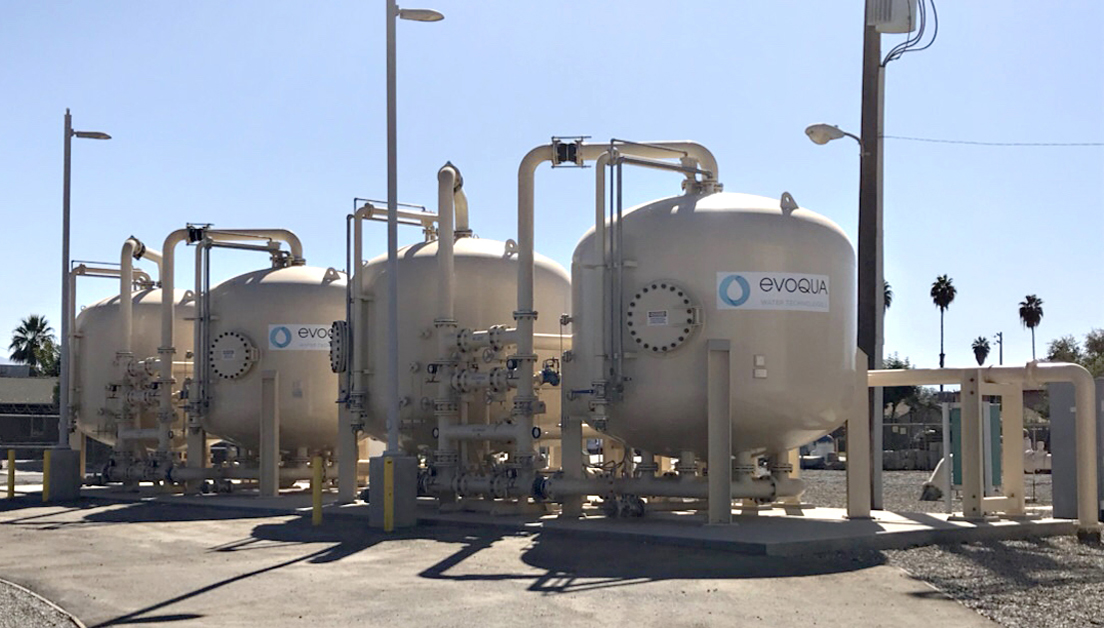Challenge
A major water utility in the western US awarded Evoqua Water Technologies the contract to provide a groundwater treatment solution for two contaminated wells which needed to be returned to service and to provide compliant drinking water in the region. The primary volatile organic compounds (VOC's) of concern include trichloroethylene (TCE), 1,1-dichloroethylene (1,1-DCE), perchloroethylene(PCE) and carbon tetrachloride.
Facing the State's third consecutive year of drought and rationing, interim wellhead treatment at the customer's well field was identified and budgeted for groundwater recovery to reduce demands of imported water and increase the water supply.
Solution
To treat the contaminated wells, Evoqua was awarded a contract to provide two influent sand separator/filter and granular activated carbon water treatment systems. In each treatment system, the sand separators/filters remove sand to prevent clogging of the carbon beds. The carbon equipment for each well consists of five parallel trains. Each train includes two HP® 1220 carbon adsorbers operated in series and containing Westates® coconut shell based AquaCarb® 1240C carbon to reduce the VOCs to drinking water standards.

In addition to providing the treatment system, Evoqua's scope of supply also included system installation, testing and commissioning and training of staff. An annual service and operations contract provides scheduled media exchanges, service and troubleshooting support, including operations and maintenance of the system for one year by a Department of Public Health certified water treatment operator.
Results
Evoqua built, delivered, and installed the groundwater treatment system within the required project schedule.
The customer received permit approval from the State within months of installation. As a result of the successful delivery, startup, and operation of this system, since permit approval the customer has produced nearly 700 million gallons of water using this system, reducing their imported water demand.
